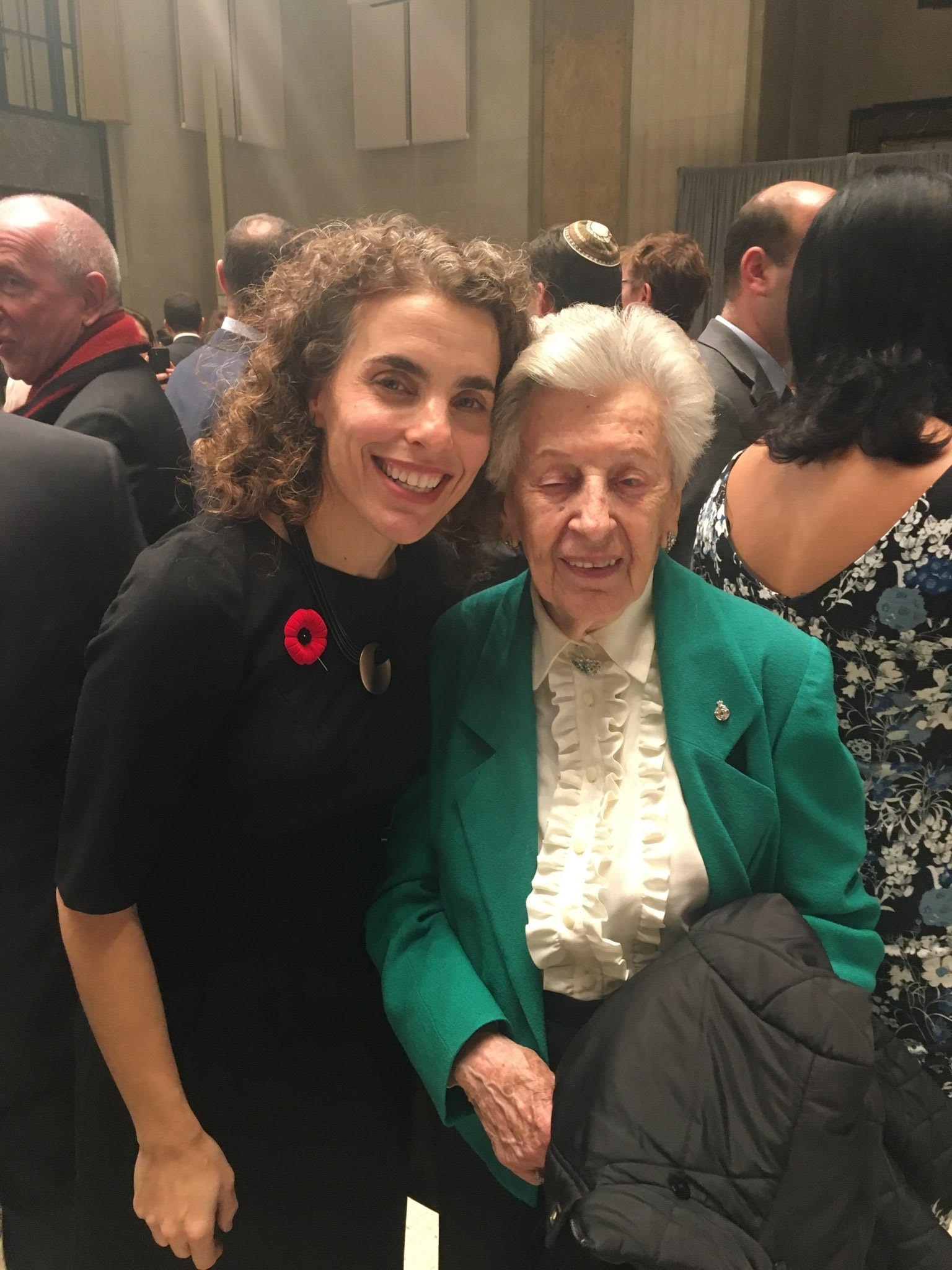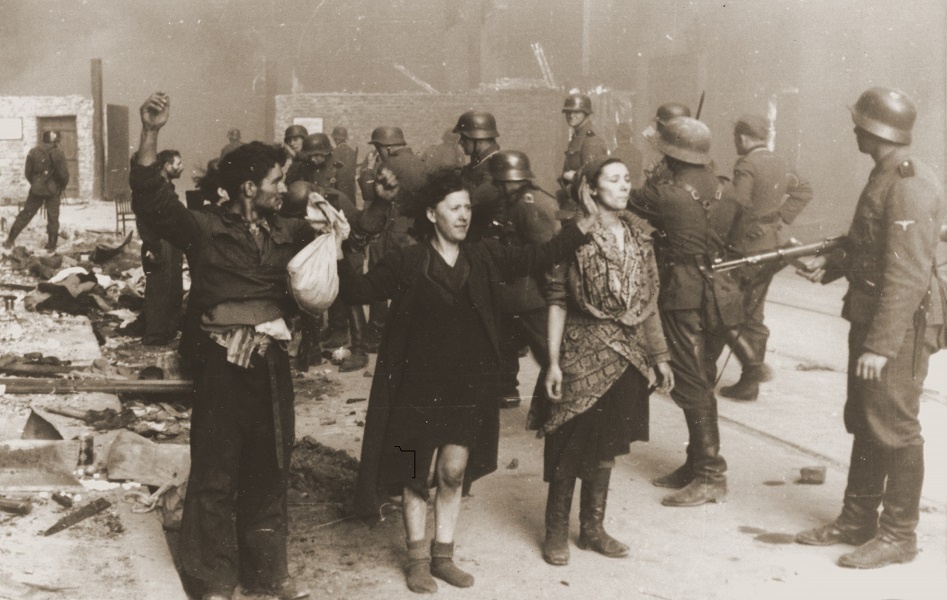This blog has been re-posted from the FacingToday blog post written by Kaitlin Smith, a Marketing and Communications Writer for Facing History and Ourselves.
Topics: Holocaust Education, Holocaust and Human Behaviour, international holocaust remembrance day
“Trust is not just something that you ‘organize’, it’s earned over time”: Approaches to Gathering Trust-based Testimony and Research Methodologies
Posted by Charlotte Schallié and Ilona Shulman Spaar on March 4, 2021
This is the 2nd blog in a 2 part series. Click here to read Part 1 which discusses the project and art as a critical tool of inquiry.
Topics: Holocaust, Survivor Testimony, Museum Studies, Holocaust Education, Holocaust and Human Behaviour, Graphic novels
When Storytelling Intersects with Holocaust & Human Rights Education: An International Education Project Initiated in Canada
Posted by Charlotte Schallié and Ilona Shulman Spaar on February 25, 2021
This is the 1st blog in a 2 part series. Part 1 discusses the project and art as a critical tool of inquiry. Part 2 explores the process and approaches to putting together testimony and historian research methodologies for educators interested in teaching students what active historian work looks like.
Topics: Holocaust, Museum Studies, Holocaust Education, Holocaust and Human Behaviour, Inquiry, Graphic novels
No PowerPoints, No Prezis: A Creative Genocide Course Inquiry Project
Posted by Lindsay Hutchison on November 19, 2019
In this blog post, British Columbia educator Lindsay Hutchison shares how she engaged her Genocide 12 course students in an inquiry project on resistance during the Holocaust. She walks us through the design and reflection behind this project and shares her assignment outline and several of the students' creative responses.
Topics: Genocide/Collective Violence, Holocaust Education, resistance, Genocide and Crimes Against Humanities Course, Holocaust and Human Behaviour, Inquiry, Creative
Facing History and Ourselves Canada will be running some amazing professional development seminars throughout Canada this summer. Below is the information for all of the upcoming seminars, as well as the link to find out even more information on each seminar.
Topics: Professional Development, Summer Seminar, Holocaust and Human Behaviour, stolen lives
Creating Meaningful Responses to Memoir and Engaging in Reciprocity
Posted by Alysha Groff on June 21, 2019
This spring, Facing History and Ourselves, in partnership with the Azrieli Foundation Holocaust Survivors Memoir Program, invited 175 students from 6 schools to layer onto their learning about the history and legacies of the Holocaust, or of Canada's Residential Schools by reading Survivor memoir. Students read Theodore Fontaine’s Memoir Broken Circle: The Dark Legacy of Indian Residential Schools, or excerpts of Nate Leipciger’s Memoir The Weight of Freedom, then created pieces that reflected their understanding and responses to these testimonies, which were gifted to each Survivor.
Topics: Toronto, Holocaust, Memoir, Facing History and Ourselves, Survivor Testimony, Canada, Residential Schools, Canadian History, Student Work, project, genocide, Holocaust and Human Behaviour, reflection, Connected Learning, Grade 10 History, HSB, CHC, difficult conversations, trc, stolen lives, facing history pedagogy, Azrieli Foundation Memoirs, Decolonizing Schools, Holocaust History in Canada, Facing Canada, cross curricular teaching and learning, collaborative inquiry
As an educator, I used to think true learning was my teacher content knowledge level or how much information I could get out there to students. Here’s what I thought should happen: students would learn information,reproduce it in the way I wanted them to, and then that would be a good measuring stick for how much they knew. However, In the 21st century with a world of information availability at your fingertips, this approach has become more and more obsolete.
Topics: Identity, Holocaust Education, Holocaust and Human Behaviour, facing history pedagogy, Facing Canada
My Reflections on Canada’s Apology for the MS St. Louis
Posted by Leora Schaefer on November 15, 2018
As part of a Facing History and Ourselves course, educators and students reflect on the power of apology. These apologies are often examined within the context of transitional justice. In Canada our students explore the apology given by the Canadian Government for their role in the establishment of Indian Residential Schools. In advance of a close reading of this apology, students and their teachers consider moments in which they have either given or received a meaningful apology.
Topics: Holocaust, Survivor Testimony, Holocaust Education, Holocaust and Human Behaviour, apologies, Holocaust History in Canada
A collaboration between Facing History and Ourselves and the Azrieli Foundation's Holocaust Survivor Memoirs Program, first posted on Azrieli Memoirs' Blog page.
Words referencing mass atrocities of the past, such as fascist, racist, Nazi, genocide and Holocaust, carry deep historical meaning, yet these words are often misused in reference to contemporary events. Using these words too casually not only diminishes the meaning of the words themselves, but also diminishes the events that the words represent. In this blog post, we look to remember the meaning of the term genocide and the conditions that drove a lawyer named Raphael Lemkin to coin this term to describe a horrific crime — a crime that prior to 1944 lacked a name and legal repercussions.
Topics: Survivor Testimony, genocide, Genocide and Crimes Against Humanities Course, Holocaust and Human Behaviour, Grade 10 History, Azrieli Foundation Memoirs
On January 27 - the anniversary of the liberation of Auschwitz-Birkenau - the United Nations General Assembly and its member states commemorate International Holocaust Remembrance Day. On this day, (indeed every day) we remember the victims of the Holocaust and remind ourselves of the importance of teaching and learning about the Holocaust for the prevention of future genocides. Here are few blog posts that highlight a variety of approaches to teaching this important history. We hope these will inspire and assist you as you prepare for this day of remembrance and learning.
Topics: Holocaust, Holocaust Education, Middle School, Holocaust and Human Behaviour, Inquiry, Grade 10 History, HSB, CHC, Anne Frank, international holocaust remembrance day

.webp)

.png)

.jpeg)
.jpeg)


